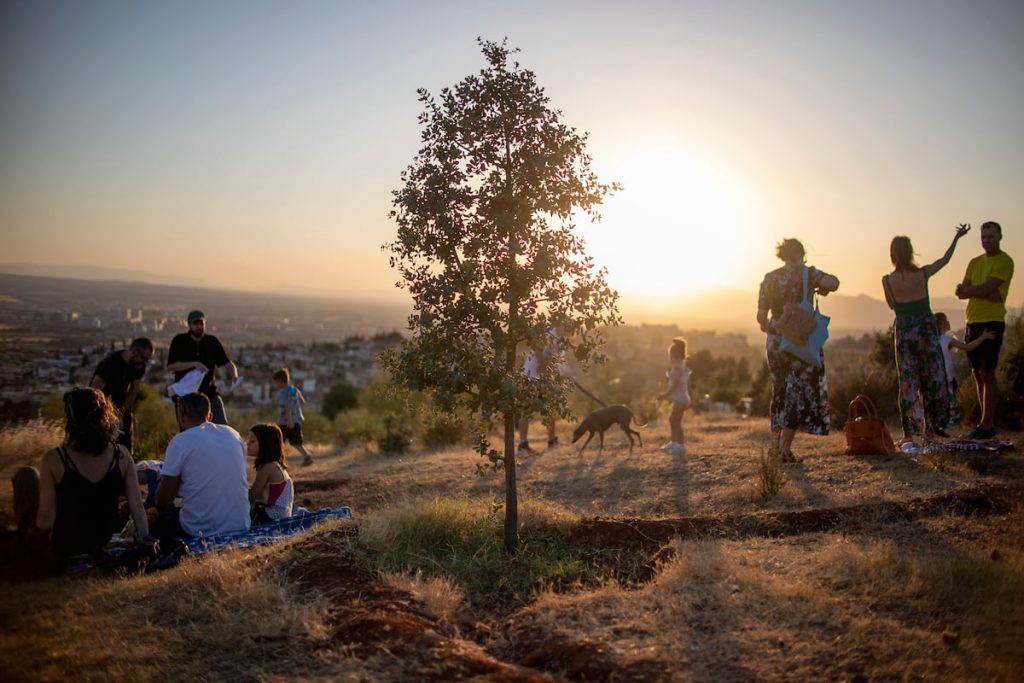The desert is advancing in Granada, stealing the little wealth that the Camino de los Neveros, a path winding up Sierra Nevada, may have. The Veleta peak looms expectantly over this trail, which arriers from the 16th century used to transport ice to the capital every summer. However, there are no longer signs of those white summits at this time of year, and even the source of Los Castaños, a stop for transhumance, has dried up. Despite the harsh conditions, Pepe Víbora, a 66-year-old mechanic, is determined to fight the desolation, planting 8,000 oak trees in Huétor Vega, a town of 12,000 inhabitants. These trees have grown up to five times faster than usual, with some reaching three meters in height in just six years. This biological miracle is the result of a grassroots movement involving 200 families, aiming for the oak trees to develop deep roots in search of water.
The metropolitan area of Granada is at a high risk of desertification, but Pepe Víbora is applying unconventional knowledge to combat this. He plants sweet acorns in recycled plastic bags in October, cutting the bottom open eight months later to allow the plant to take root without being exposed. The children in the community joyfully participate in watering the trees with a hose connected to a public fountain. The Camino de los Neveros, a livestock route under the jurisdiction of the Andalusian government, has approved the Operation Encina project, which is entirely funded by the participants. Víbora strategically shapes planting holes to maximize rainwater collection, using African imported devices to aid in irrigation. By employing these methods, he ensures that every drop of water is efficiently utilized to help the trees thrive in the scorching heat.
Pepe and his daughter Beatriz have dedicated themselves to the oak trees since 2014, when they witnessed a fire along the Camino de los Neveros and decided to take action. Many experts have been amazed by their work, including Mar Verdejo, an agricultural engineer and landscape architect from the University of Almería. Verdejo praises their innovative techniques for accelerating natural processes and creating a new microclimate through deep watering. Pepe and Beatriz have collected acorns from ancient oak trees to develop their reforestation program, focused on repopulating public livestock routes across Spain. Beatriz encourages others to join the initiative and emphasizes the importance of community involvement in restoring forests for a sustainable future.
The project has attracted academics, families, and individuals from diverse backgrounds, all working together to revive the oak forest in Huétor Vega. Beatriz aims to engage the youth in the community, distributing kits for planting oak trees to over 200 children last year. The project has become a source of unity among teachers, homemakers, builders, unemployed individuals, engineers, and students, illustrating the power of collective action in environmental conservation. As the sun sets over the reforested area, Pepe and his fellow volunteers reflect on the impact of their efforts, demonstrating that innovative approaches and community collaboration can effectively combat desertification and restore biodiversity.


